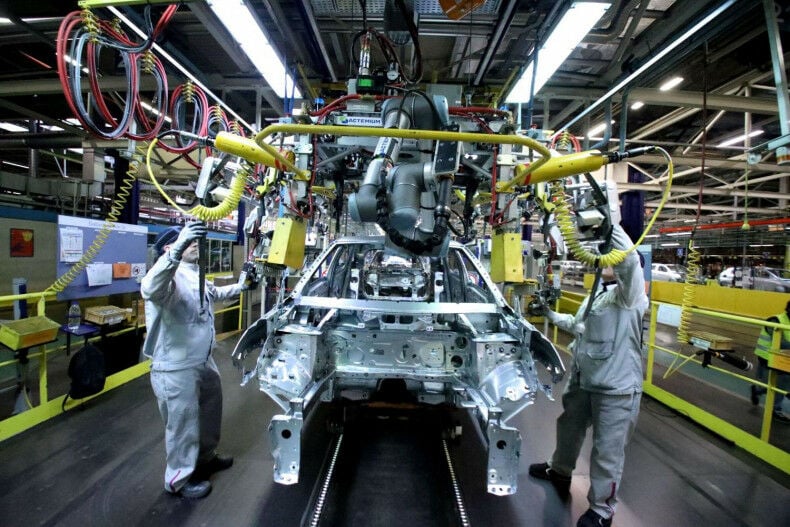Thailand’s MPI drops 3.5% amid auto, construction slowdown

Thailand’s Manufacturing Production Index (MPI) experienced a decline of 3.5% year-on-year, reaching 92.4 points in September.
The Office of Industrial Economics (OIE) attributes this drop primarily to a slowdown in both the automotive and construction sectors. As the final quarter of the year approaches, the uncertainty surrounding the US presidential election might add further challenges.
The third quarter saw the MPI fall by 1.2% year-on-year to 94.7 points, with capacity utilisation recorded at 58.2%. Passakorn Chairat, acting director-general of the OIE, explained that the decrease in the September MPI is linked to a domestic economic slowdown, reduced consumer purchasing power, and elevated household debt levels.
“Car manufacturing in the country continued to decrease, declining for the 14th consecutive month.”
September’s car production, particularly pickups, small passenger cars, and hybrid electric vehicles with engine sizes exceeding 1,800 cubic centimetres, dropped by 23.4% compared to the previous year. The downturn in car production is partly due to banks imposing stricter criteria for auto loans amidst concerns over non-performing loans.
In the construction sector, the production of concrete, cement, and plaster fell by 8.9% year-on-year, reflecting a deceleration in public and private construction projects. This slowdown is compounded by the high level of household debt and an increase in the prices of construction materials and residential buildings.
Conversely, the OIE reported that canned food production from aquatic animals surged by 49.9% year-on-year in September. This boost is attributed to increased purchase orders from countries such as the US, Canada, and Australia, in preparation for year-end festivities.
As the year draws to a close, Thai businesses face ongoing challenges. These include the persistent weak purchasing power of consumers, signs of an economic slowdown in the US, and the upcoming US presidential election on November 5.
The contest sees Republican candidate and former president Donald Trump in a close race with Democratic candidate and Vice-President Kamala Harris, reported Bangkok Post.
“There will be companies affected or benefiting from the new US administration. I suggest manufacturers adapt themselves and better manage their resources,” Passakorn advised.
He also urged factories to increase their use of clean energy, aligning with international efforts to reduce carbon dioxide emissions.
Latest Thailand News
Follow The Thaiger on Google News:


























